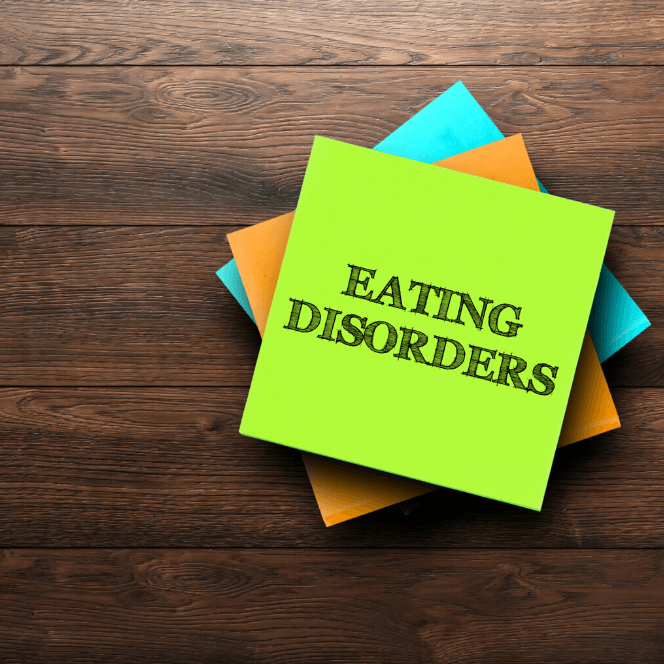The dominant discourse around ‘eating disorders’ suggests that in order to help individuals with these conditions, we should improve clinical knowledge and lay ‘awareness’. We need ‘reduced stigma’ so that individuals are more likely to seek help, better-skilled clinicians who can ‘spot the signs’ and accurately diagnose, widely available specialist treatment that is not highly geographically variable, and research funding for evidence-based treatment.
I have no doubt that many individuals benefit significantly from the eating disorder treatment they receive, and that seeking help and being diagnosed can be vitally important steps in a life-saving process of recovery. However, I would like to point to the complexity underlying these processes. It is vital to recognise the ways in which cultural, clinical, and personal meanings of diagnostic categories interact, and how the diagnosis intersects in individuals lives in varied ways. Diagnosing is not a neutral act, and the diagnostic category of an eating disorder does something different for each individual.
Eating disorders are not synonymous with ‘anorexia’, and I do not wish to perpetuate unhelpful perceptions of this particular eating disorder category as more worthy of concern than others. However, I focused on anorexia in my research partly because it was developed in response to my own experiences with this diagnosis. The overall aim of my research has been to examine individuals’ experiences of ‘having’ a diagnosis of anorexia, including in a treatment context. The sociology of diagnosis recognises that the act of being diagnosed (or ‘application’ of diagnosis) is a complex and negotiated activity which is impacted by the experiences of both practitioner and patient, and shrouded in personal meaning (Kralik et al, 2001; Jutel, 2011; Jutel and Nettleton, 2011). My research has focused on the diagnostic act itself, including what it meant to participants at that time, and it how it intersected with their experiences up until that point.
When a medical professional diagnoses someone with anorexia, their intention is to help. A diagnosis should assist in better understanding the nature of the persons struggles and providing access to appropriate treatment. A diagnosis can therefore feel like a relief to the person who receives it. It was indeed the case that some individuals in my research were relieved to be diagnosed with anorexia. In these cases, the diagnosis was perceived as a useful way forward: it offered a new and helpful way of understanding one’s struggles and provided access to treatment that was desperately wanted.
However, some participants did not identify with the diagnosis at the time it was given. Often, these individuals had not driven the help-seeking process themselves and did not believe that they required clinical intervention. Their lack of identification with anorexia was sometimes a passive lack of connection with the immediate circumstances, and sometimes a more active rejection of the diagnostic category as a useful construct or as personally applicable. In the case of the latter, a lay image of what someone with anorexia ‘looks like’ and how it physically manifests played an important role, as participants did not think of themselves as ‘matching up’ to their pre-existing ideas of anorexia.
That diagnoses carry multiple ‘positive and negative’ meanings of these sorts has also been shown for other psychiatric categories, such as Borderline Personality Disorder and ADHD (Horn et al, 2007; Hollerod-Hansson, 2011). However, somewhat more unique to anorexia is its meaning as a ‘marker of success’. Individuals in my research sometimes valued being diagnosed with anorexia for its legitimising effects. The diagnosis recognised the extent of one’s suffering and confirmed the hard-work of self-starvation. It carried overtones of success and accomplishment. Indeed, individuals may seek to be medicalised through the diagnostic label of anorexia and enjoy being defined as clinically ill (Dignon, 2006; Boughtwood and Halse, 2008). Anorexia can be imbued with ideas about heroism, strength, and discipline (Lavis, 2011), and can be a source of pride. The pride aspect is thought to be related to an association between anorexia and self-control (Rance et al, 2017; Skarderud, 2007).
Once diagnosed, individuals in my research sometimes felt they needed to ‘live up’ to the diagnosis and work at becoming a ‘legitimate’ anorexic who is genuinely sick. Reasons included a wish to retain access to treatment and to hold on to a personally desirable positioning (as a ‘real anorexic’) and negate fears about being ‘fraudulent’. Here, the clinical standards and subtly projected expectations of how an individual with anorexia is supposed to appear and behave come into play. A major way this occurs is in relation to low weight, which is feature of anorexia that is privileged in clinical settings. It has been a criterion for diagnosing anorexia since the DSM III (1980) (prior to DSM III, DSM publications did not include specific diagnostic criteria) and losing weight is therefore considered a primary ‘anorexic behaviour’. There is also an association between the extent of weight loss and the severity of one’s anorexia, whereby being a very low weight is indicative of ‘strong’ illness. This association is written into the DSM-5 criteria for anorexia, which uses body mass index (BMI) to categorise severity (for example, anorexia is considered ‘mild’ for a BMI greater than 17, and ‘extreme’ for below 15). Clinical discourse in treatment links anorexia with weight loss to such an extent that weight is treated as a direct reflection of the existence of illness, and without the maintenance of a very low weight or ongoing weight loss, one’s diagnosis is undermined. Participants in my research recognised how clinical standards reinforced this weight-illness equation by using weight as a basis for making clinical decisions. These dynamics add to the ‘aspirational’ perceptions of being a very low weight and create an additional element of personal distress in the process of weight gain in recovery.
The findings from my research point to the important role of sociology (and ‘critical’ social sciences more generally) in shedding light on the hidden and unintended consequences of clinical activity, including the act of diagnosis itself. This is vitally important in a context whereby there remains much to understand about eating and weight related distress, and how best to help individuals who experience this.
Lauren O’Connell is a Research Officer in the School of Social Work and Social Justice at the University of Essex.


